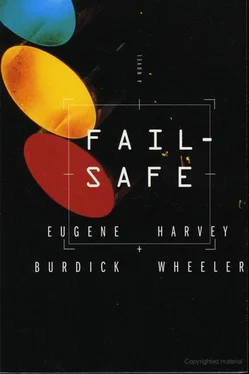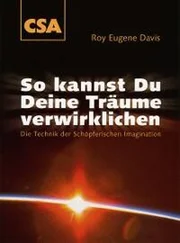“Yes,” Swenson uttered the single word. It underlined the sense of urgency.
The new voice came on, weak and reedy at first, then gaining in confidence. “The more complex an electronics system gets, the more accident-prone it is,” Knapp said. “Take our missiles. Each of them is, in the design- stage, checked, double-checked and thoroughly pretested. All of their characteristics have been put through simulated conditions long before the missile is even built. All along the line everything checks out perfectly. Each of the missiles should fire and fly beautifully. But it never happens that way in practice. The Atlas is the most reliable missile we possess. But what happens: we make our first moon shot and it misses by 25,000 miles. Take the old X-15. It was a very small piece of equipment. It was perfect on computers, flew like a dream. It was a beautiful little computerized space needle launched from a mother plane. But there were very few X-15 flights in which something entirely unforeseen did not go wrong.”
“How does this apply to our situation, Mr. Knapp?”
Swenson asked abruptly.
“In this very direct way, Mr. Secretary,” Mr. Knapp said, his voice rising. “Pile all those electronic systems on top of one another and sooner or later there will be a deteriorated transistor or a faulty rectifier, and the thing breaks down. Sometimes even those marvelous computers suffer from fatigue. They start to get erratic just like overworked humans.”
“Mr. Secretary, what Mr. Knapp is saying is wrong because it overlooks one factor,” Groteschele cut in angrily. “Even if the machines fail they are supervised by humans. The human could always reverse or correct the decision of the machine.”
Knapp laughed and it was a thin, abrupt, and pitiless laugh. “I wish, sir, you were right,” Knapp said. “The fact of the matter is that the machines move so fast, are capable of such subtle mistakes, are so intricate, that in a real war situation a man might not have the time to know whether a machine was in error or was telling him the truth.”
Black felt a sharp sense of relief. If Knapp had not said this he would have had to. Coming from the “outside” it carried more weight.
“Mr. Secretary, I don’t know if you want a politician’s guess,” Congressman Raskob’s voice said from Omaha, “but you’re going to get it. No politician, and I don’t give a damn whether he is a dictator or a democrat, could survive if he allowed one of his largest cities to be destroyed without taking some kind of action against the enemy. People can be awfully damned vengeful. I don’t know how Khrushchev thinks, but one thing is sure: if he lets Moscow get blown up without taking action against us, he won’t live to write about it in his memoirs.”
The red phone rang. Swenson picked it up smoothly, with no more emotion than if it were a social call at home. No one in the room knew precisely what he would say. But what he said would be the official opinion of an institution made up of millions of men and billions of dollars of equipment and a staggering amount of information. Black looked at Groteschele. Groteschele had, now that the decision was dose, relaxed in his chair.
“Mr. President, it is our opinion that Group 6 did actually fly through their Fail-Safe point,” Swenson said. “This was probably due to a compound mechanical error. There is an outside chance that the Soviets might have triggered or contributed to the mistake by making some experiment or jamming procedure of their own. We doubt that there has been a human error or that the Commander of Group 6 has gone berserk.”
He stared at the pad in front of him. He began to make some notes; There was an almost visible rise in tension in the room. They had given an opinion.
There was, as yet, no decision.
Swenson looked up and spoke to the table at large, the phone held loosely in his hand, his voice calm.
“The President wants to know what the chances are of those six planes getting through to Moscow,” he asked. He looked at Black.
“One or two of the six will probably get through,” Black answered promptly. “Maybe more.”
“Two,” Swenson said into the phone. He listened, looked up again.
“Even with the entire Soviet defensive apparatus concentrating on them?” Swenson repeated the President’s question.
“Our Vindicators fly so fast that they won’t be able to use all of their defensive apparatus,” Black said. “They just can’t get it in front of the Vindicators in time. They will have to shoot down the Vindicators with what is already there plus maybe a few additional fighters. It’s an intricate calculation, but we have made it scores of times and it is based on a consideration of what the Soviets have in the way of defense and what our Vindicators have in the way of evasive capacity.”
“They will be unable to concentrate effectively against the Vindicators because of their speed,” Swenson said into the phone.
Swenson put the phone down.
“The President is assuming that two of the planes will get through,” he said slowly. “We have moved into a genuine crisis. He is going to talk to Khrushchev on the phone.”
“I think we are ready to talk to Premier Khrushchev, Buck,” the President said. “The operator is prepared for the call. Just tell her to complete the Moscow-connection.”
Buck picked up the phone. Instantly the operator said, “Yes, sir?”
He gave her the instructions. At once there were the sounds of a long-distance call being completed, but there was a strange lack of static on the line. As the operator worked, Buck looked at the President.
The President seemed almost asleep. Buck had heard of his capacity to take quick short naps. Buck realized that the President had also developed a capacity to live with crisis. If he allowed each crisis to take its toll he would have died long ago of anxiety.
Now, his eyes half-closed, his face relaxed, the President looked younger, closer to his real age. No one, Buck thought, ever makes the complete adjustment to constant tension. Responsibility had laid pouches under the President’s eyes, etched lines around his mouth, given his powerful hands the slightest tremor.
“Hello,” a voice said suddenly in Russian. “Khrushchev is here.”
“Premier Khrushchev, the President of the United States is calling,” Buck said quickly.
The President came quickly forward in his seat, picking up his phone.
“Who else?” Khrushchev said. Incredibly, his tone sounded almost jovial to Buck. “That is what the line was set up for.”
Buck translated for the President.
“Premier Khrushchev, I am using the telephone line which your government and mine agreed should always be kept open. This is the first time it has been used. I am calling you on a matter of great urgency.”
This time another voice on the Moscow end of the line began to translate what the American President had said. At once the President nodded to Buck and then began to speak. Buck translated quickly, speaking over the voice of the Moscow translator.
“Premier Khrushchev, because of the urgency of the matter I hope that you will agree to the use of a single translator,” the President said. “Of course, I have no objection to your translator listening to make sure that my translator is giving you a faithful rendition of what I say, but time is very short and the problem is urgent. Two translators would only complicate it.”
There was a long moment of tension after Buck had translated. Buck felt squeezed buglike between the wills of two men. Although they were separated by thousands of miles it was almost as if their strength poured through the line. Buck, for the first time in his career, felt uncomfortable while translating. He sensed that this first clash of wills was important. He wanted to -be out of the room, to remove himself physically, yet, at the same time, he was fascinated by what was happening.
Читать дальше











